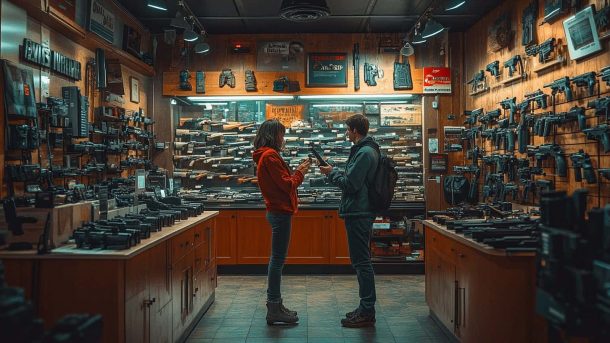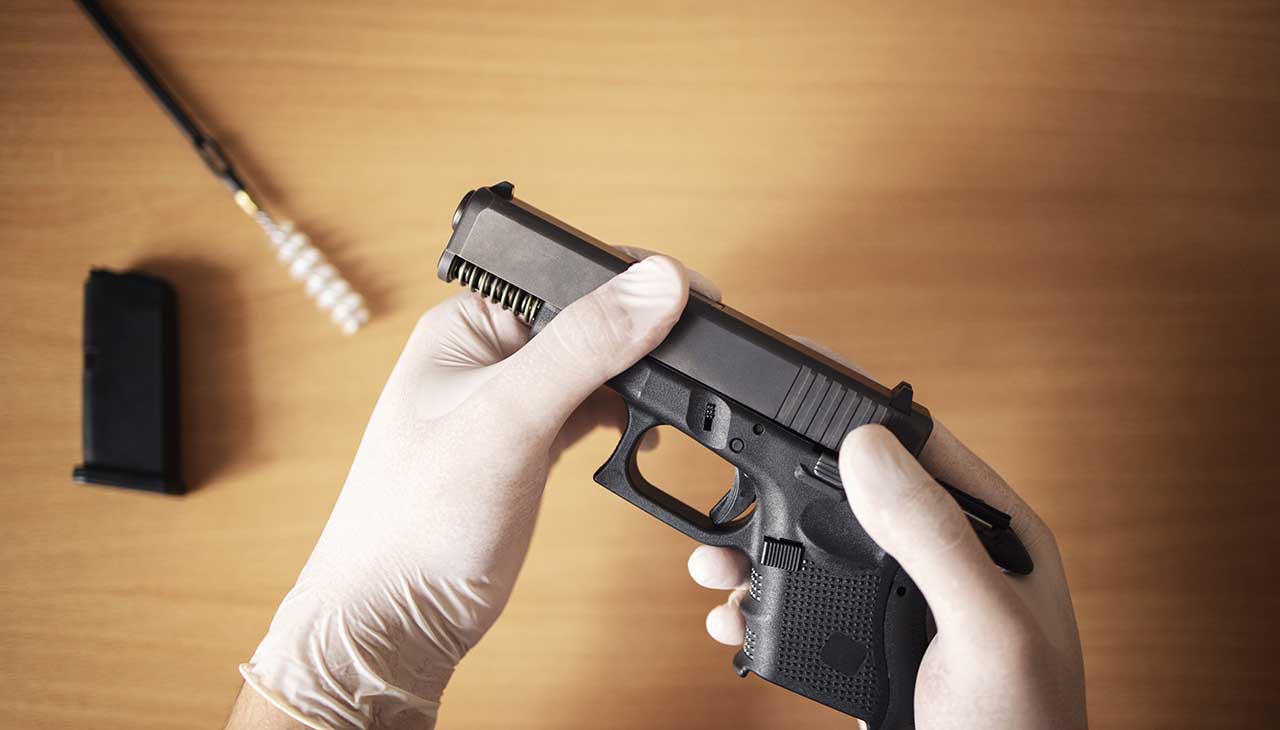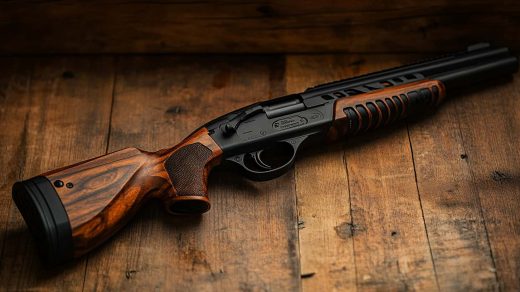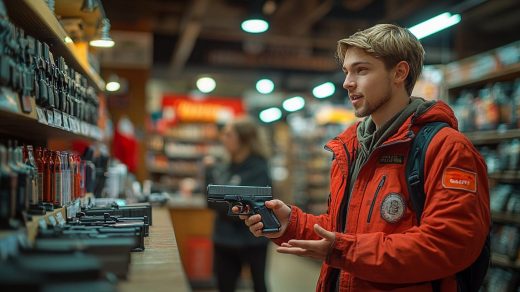The decision to purchase a firearm for self-defense is a serious one, requiring careful thought and consideration. Firearms can provide a sense of security and serve as a powerful means of protection, but choosing the right one involves understanding your needs, the types of firearms available, and the responsibilities that come with ownership. This guide will help you navigate the process of selecting the best firearm for self-defense, ensuring your choice aligns with your personal circumstances and level of experience.
Understanding Your Needs
Before purchasing a firearm, it’s essential to evaluate your specific self-defense needs. Consider factors such as your living situation, experience with firearms, and your intended use. Are you looking for a firearm to keep at home for protection, or do you need something suitable for concealed carry?
For home defense, size and concealability are less critical. Many people opt for larger firearms like shotguns or full-sized pistols for their increased stopping power and accuracy. On the other hand, if you’re planning to carry a firearm daily, a smaller, lighter handgun designed for concealment may be a better choice.
Tip: Make a list of priorities, such as ease of use, safety features, and stopping power, to guide your decision-making process.
Types of Firearms for Self-Defense
Self-defense firearms fall into several main categories, each with its pros and cons.
- Handguns
Handguns, particularly semi-automatic pistols and revolvers, are among the most popular choices for self-defense. They are compact, easy to store, and suitable for both home defense and concealed carry.- Semi-Automatic Pistols: These are widely favored for their larger ammunition capacity and quick reloading capabilities. Common calibers like 9mm provide a good balance of stopping power and manageable recoil.
- Revolvers: Known for their reliability and simplicity, revolvers are excellent for beginners. They often have fewer mechanical issues and are easy to maintain, though they typically hold fewer rounds.
- Shotguns
Shotguns are a powerful option for home defense. Their wide spread makes it easier to hit a target, even under stress. However, their size and recoil can make them less practical for some users, particularly beginners or those with smaller frames. - Rifles
While not as common for self-defense, rifles can be effective in certain scenarios, especially when defending a larger property. Lightweight carbines like the AR-15 offer accuracy and versatility but may not be the best choice for confined spaces or inexperienced users.
Tip: Visit a local shooting range to try different types of firearms before making your decision. Hands-on experience can help you understand what feels most comfortable and intuitive to you.
Prioritizing Safety and Usability
When selecting a firearm, safety and usability should be at the forefront of your decision. A firearm should be easy for you to operate under stress, and it must have safety features that align with your skill level and preferences.
- Comfort and Fit
The firearm should feel comfortable in your hand. A proper grip allows you to control recoil and aim accurately. For pistols, consider the size of the grip, the weight of the firearm, and the placement of controls like the safety switch and magazine release. - Trigger Pull
The amount of pressure needed to pull the trigger (trigger pull) can vary greatly. Beginners often prefer firearms with lighter, smoother trigger pulls for ease of use. - Safety Features
Some firearms come with manual safeties, trigger safeties, or grip safeties. While these can provide peace of mind, they may also require extra training to use effectively. Make sure you’re comfortable engaging and disengaging these features quickly. - Reliability
A self-defense firearm must function flawlessly every time. Research brands and models known for their reliability, and avoid cutting corners when it comes to quality.
Training and Practice
Owning a firearm for self-defense comes with the responsibility of knowing how to use it safely and effectively. Proper training is essential to ensure that you can handle your firearm confidently in a high-stress situation.
- Take a Safety Course: Enroll in a firearms safety class to learn the basics of handling, storing, and maintaining your firearm.
- Practice Regularly: Visit a shooting range to build muscle memory and improve accuracy. Regular practice will also help you stay familiar with the operation of your firearm.
- Learn Defensive Techniques: Consider taking a self-defense shooting course to learn tactics for protecting yourself in real-world scenarios.
The Role of Ammunition
Choosing the right ammunition is just as important as selecting the firearm itself. Self-defense ammunition is designed to stop a threat effectively while minimizing the risk of over-penetration. Hollow-point bullets, for example, expand upon impact, reducing the chances of hitting unintended targets.
Tip: Test your chosen ammunition at the range to ensure it functions well with your firearm and that you’re comfortable with its performance.
Legal Considerations
Before purchasing a firearm, familiarize yourself with the laws in your area. These may include background checks, permits, waiting periods, and restrictions on certain types of firearms or accessories. Responsible firearm ownership also includes understanding when and how you’re legally allowed to use your firearm in self-defense.
Storage and Maintenance
Proper storage is essential to ensure the safety of everyone in your household. Invest in a secure gun safe or lockbox to prevent unauthorized access. For firearms used for home defense, consider quick-access safes that allow you to retrieve your weapon quickly in an emergency.
Regular maintenance is also crucial. Clean and inspect your firearm after each use to ensure it remains in good working condition. Neglecting maintenance can lead to malfunctions, which are unacceptable in a self-defense situation.
Conclusion
Choosing the right firearm for self-defense is a deeply personal decision that requires careful consideration of your needs, experience, and the specific features of each firearm. By prioritizing safety, comfort, and reliability, and committing to regular training and responsible ownership, you can ensure that your firearm is a valuable tool for protection.
Whether you opt for a handgun, shotgun, or rifle, the most important factor is your confidence and competence in using it. With the right choice and preparation, a firearm can provide you with peace of mind and the means to protect yourself and your loved ones.





